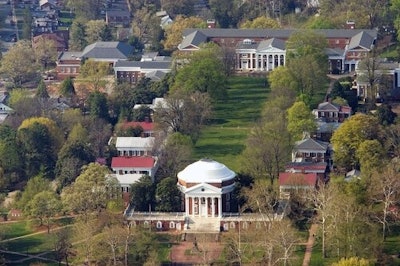 University of Virginia
University of Virginia
“Universities have done a terrible job for most of their existence of telling a real, truthful account of their history, and so we confuse myth and memory,” said Dr. Kirt von Daacke, professor of history and assistant dean of the College of Arts & Sciences at the University of Virginia (UVA), which is home to the international Universities Studying Slavery (USS) consortium. “These projects may be born in moments where we know we need to do something differently, but they are constant with the vision and mission of any university. We are here to create new knowledge. If we don’t do this work, we fail to live up to our vision as a university.”
Since around 2016, almost 100 colleges and universities in the U.S. and globally have joined the USS consortium. According to the network’s mission statement, “member schools are all committed to research, acknowledgement, and atonement regarding institutional ties to the slave trade, to enslavement on campus or abroad, and to enduring racism in school history and practice.”
As part of the consortium, von Daacke co-chaired the UVA President’s Commission on Slavery and the University. In 2018, that commission published a report on UVA’s connections to the slave trade, including the history of its founder Thomas Jefferson, who enslaved more than 600 people over his lifetime.
“We sit at a university where the man who wrote the Declaration of Independence also held hundreds of people in bondage and did very little to free those people, “ added von Daacke. “So, we have it all here: the democratic ideal as espoused in the Declaration as well as a university plantation landscape in one of the largest slaveholding states. It’s our students who stand up and say, we need to talk about this. We’re not being honest about our history. And what you find is that universities become much more honest and much more welcoming for a broader swath of people.”
In April of this year, Franklin & Marshall College (F&M), a private and predominantly white liberal arts college, became one of the newest members of USS. The college enrolls about 2,283 students, has roughly a $450 million endowment, and is in Lancaster, Pennsylvania. F&M is also named after Benjamin Franklin and John Marshall, both enslavers.
“Franklin and Marshall have been scrutinized about owning of slaves as part of their history, and that history has long been hidden, so our goal is to educate our community about it,” said Dr. Gretchel Hathaway, F&M’s first vice president for diversity, equity, and inclusion. “I want our youngsters to know the true story of how slaves were brought to America, how people made money off the backs of people they did not pay.”





















